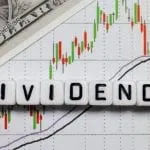Four Dividend Income Beverage Investments to Purchase
By: Paul Dykewicz,
Four dividend income beverage investments to purchase provide potent potential to profit while avoiding the worst effects of high inflation, a recession or Russia’s persistent invasion of Ukraine.
The four dividend income beverage investments to purchase may well be worth celebrating with their growth stories intact and consumers’ willingness to absorb consumer price inflation that most recently reached 8.5% annually. Beverage investments might not be fully inflation-resistant, but they are far more protected than consumer discrepancy stocks that specialize in luxury goods.
“Consumer staples, of which food and beverage are a subset, usually outperform stock indexes during recessions and bear markets,” said Bob Carlson, a pension fund chairman who also leads the Retirement Watch investment newsletter. “The companies tend to have reliable cash flows and can increase prices as costs rise. Consumers will reduce spending in other areas when money becomes tight.”
A Diversified ETF Is One of the Four Dividend Income Beverage Investments to Purchase
For a diversified position in food and beverage stocks, investors may want to consider an exchange-traded fund (ETF) such as Invesco Dynamic Food and Beverage (PBJ), suggested Carlson, who monitors that sector closely. The fund tends to have smaller and more growth-oriented companies than others in the consumer staples sector.

Chart generated using Stock Rover. Start your 2-week free trial now.
The ETF has 29 stocks, and 47% of the fund is in the 10 largest positions. Top holdings recently were General Mills (NYSE: GIS), Keurig Dr. Pepper (NASDAQ: KDP), Sysco (NYSE: SYY), Hershey (NYSE: HSY) and PepsiCo (NASDAQ: PEP).

Chart courtesy of www.stockcharts.com
The fund is up 6.18% in the last month, 6.07% so far in 2022, and 13.82% during the past year. Its dividend yield is 0.8%, according to Stock Rover.

Bob Carlson, who leads Retirement Watch, meets with Paul Dykewicz.
Coca-Cola Leads Four Dividend Income Beverage Investments to Purchase
BofA Global Research put a Buy rating on Coca-Cola and set a $70 price objective, reflecting a target price-to-earnings (P/E) multiple of 26x the investment firm’s fiscal year 2023 earnings per share (EPS) estimate. This valuation is a premium to non-alcoholic beverage peers (22.9x), justified by BofA’s view that Coca-Cola should weather current macro headwinds better than its peers, given its size and pricing model.
A fan of Atlanta-based Coca-Cola is Mark Skousen, PhD, who has recommended it profitably in his Forecasts & Strategies investment newsletter. Skousen placed Coca-Cola in his newsletter’s dividend-oriented Flying Five portfolio.
Each August issue, Skousen searches for the five highest-yielding, lowest-priced stocks in the Dow Jones Industrial Average. Coca-Cola is one of four stocks that retained a place in that portfolio, featuring good dividend-paying, reasonably priced stocks whose shares look ripe to rise.

Mark Skousen, a descendant of Benjamin Franklin, meets with Paul Dykewicz.
Skousen also teams up with Jim Woods for their Fast Money Alert trading service that recently recommended a new energy beverage stock. Both seasoned investment prognosticators scan the beverage industry for stocks that appear positioned to outperform the market in the current conditions of high inflation, supply chain challenges and Fed rate hikes aimed at slowing economic growth.

Paul Dykewicz meets with Jim Woods, of the Successful Investing and Intelligence Report newsletters, as well as High Velocity Options.
Connell Further Favors Coca-Cola as One of Four Dividend Income Beverage Investments to Purchase
Michelle Connell, a former portfolio manager who heads Dallas-based Portia Capital Management, performed an analysis of Coca-Cola and likes that it has raised its dividend for 60 consecutive years. She also praised its current dividend yield of 2.74%.
Warren Buffett must like the dividend as well, Connell continued, since Coca-Cola ranks as his third-largest holding, after Apple (NASDAQ: AAPL) and Bank of America Corporation (NYSE: BAC). In addition, the stock has gained 10.71% so far this year, while having fundamentals that signal further upside, she added.

Michelle Connell heads Dallas-based Portia Capital Management.
Coca-Cola’s management also boosted guidance during the company’s most recent earnings announcement. As part of that update, company leaders indicated plans to retire more than 200 products to focus on the pricing and profits of their strongest brands.
The consolidation is aimed at boosting margins and profitability, Connell counseled. There is room for increased market share in emerging and developing economies, since the company’s current share is only 7% in such regions, compared to 14% in developed markets.
“As more of the populations enter middle class status, their consumption of brands such as KO will increase,” Connell said.

Chart courtesy of www.stockcharts.com
PepsiCo Joins Four Dividend Income Beverage Investments to Purchase
PepsiCo, a Purchase, New York-based global snack and beverage company, manufactures and markets salty and convenient snacks, carbonated and non-carbonated beverages and foods. Key divisions include Frito-Lay North America (FLNA), Quaker Foods NA, North America Beverages (NAB), Latin America, Europe Sub-Saharan Africa (ESSA) and Asia, Middle East and North Africa (AMENA).
The company also operates in the United Kingdom, Mexico, India and China. Brands include Pepsi Cola, Mountain Dew, Gatorade, Tropicana, Frito-Lay, Quaker and among others. BofA has a Buy rating and a $190 price target on the stock.
“We continue to believe our multiple fairly reflects PEP’s balanced momentum, margin support and brand investments, capable of delivering the high end of their long-term outlook,” according to a recent BofA research report.
PepsiCo CEO Highlights Company’s Growth Strategy
Upon taking over as the company’s CEO in 2018, Ramon Laguarta’s efforts to pivot the company towards a growth-oriented path have taken root, BofA wrote. Reinvestment in the business and an appetite for risk remain the cornerstone philosophies of this strategy, reflected in PEP’s ramping digitization efforts, new category expansion and supply chain investments to fuel a stronger innovation engine, BofA added.
However, PepsiCo’s energy drink portfolio remains a work in progress. With Bang Energy exiting PEP’s direct store delivery (DSD) system, Rockstar still in “recovery mode” and Mountain Dew in early stages of expanding in energy drinks, the company still has the potential to make a “meaningful splash” in the energy beverage category, BofA wrote.
“While investors have speculated on the potential for a material acquisition in the space to take Bang’s place, our impression is that another distribution partnership was, in fact, more likely, with PEP seeming to prefer the ease of distributing a well-established brand within the category, according to BofA.
Stock’s Strengths May Spur Some Investors to Say, ‘Pepsi Please’
Thus far, PepsiCo Beverages North America (PBNA), one of the largest beverage companies in North America, has grown less than the beverage category and ceded share to competitors as Gatorade supply chain snarls slowed performance. With production subsequently improving, better service levels have begun materializing in Nielsen’s U.S. scanner data, showing Gatorade resuming market share growth.
“Though early in the brand’s recovery, we are encouraged by PEP’s continued outperformance against the away-from-home segment,” BofA opined. “In carbonated soft drinks, volume share losses have disappointed.”
However, loosening supply chain bottle necks are expected to have a positive impact on its share of volume for the balance of year, BofA added.

Chart courtesy of www.stockcharts.com
Keurig Dr. Pepper Procures Place Among Four Dividend Income Beverage Investments to Purchase
Keurig Dr. Pepper, a Burlington, Massachusetts-based beverage company formerly known as Keurig Green Mountain, is rated a Buy with a price objective of $45 by BofA. The valuation is a slight premium over non-alcoholic beverage peers due to KDP’s attractive portfolio and line of sight to coffee production recovery, as well as new capacity to help meet both existing at-home demand and recovery in away-from-home sales, BofA continued.
The company’s last quarterly earnings call marked Bob Gamgort’s final appearance as CEO. His replacement is Ozan Dokmecoiglu, who had been chief financial officer and president of the company’s international business.
The new leader will use his operating experience to usher in the company’s next phase, BofA noted. That phase will include expanding coffee pod capacity.
BofA set a Buy rating and $115 price objective on the stock. The beverage company offers faster relative growth and favorable margins compared to its peers, the investment firm wrote.

Chart courtesy of www.stockcharts.com
NAPA Offers Alternative to Four Dividend Income Beverage Investments to Purchase
The Duckhorn Portfolio, Inc. (NYSE: NAPA), a non-dividend-paying, Saint Helena, California-based luxury wine company, with 10 wineries, eight winemaking facilities, seven tasting rooms and more than 1,100 acres of vineyards, has shown better-than-expected recovery of its on-premise business, Bofa wrote. The investment firm lowered its price objective on the stock from $26 to $24 but retained its buy rating.
“Given that NAPA’s on-premise business has recovered faster than its original plans, we lower our sales forecast for next year fiscal year from +10.4% to +7.8%, which is still in line with the company’s long-term algorithm of high single digits,” BofA wrote.
The investment firm reported assessing how the NAPA consumer is faring in light of increased inflationary pressures, the impact of potential slowing in the on-premise channel independent restaurant traffic, trends toward premium wines and the allocation of distributor/retail space to luxury wine in 2023.
BofA gave NAPA a higher valuation than its peers due to superior growth, portfolio mix and margin structure, but a discount to high-growth beverage peers. The lower multiple also reflects a pullback in European Spirits beverage peers, BofA added.

Chart courtesy of www.stockcharts.com
Non-Dividend Monster Deviates from Four Dividend Income Beverage Investments to Purchase
Non-dividend-paying Monster Beverage Corp. (NASDAQ: MNST), a Weston, Massachusetts-based energy drink company, is rated a Buy by BofA and has been given a $115 price objective. The rating is predicated on the Monster’s fast sales growth and favorable margin structure, BofA added.
BofA’s valuation of Monster is at a premium to both the large-cap beverage group and to other consumer staples growth companies. The premium multiple is “warranted,” according to BofA, due to Monster’s faster relative growth and favorable margin structure than its peers.
Risks to investing in Monster include the company’s possible loss of market share while operating in a mature industry, uncertainty about the success of new product launches, slower-than-expected benefit from international expansion, a rotation from defensive names back into value names, more potential COVID-19 headwinds and negative currency moves.

Chart courtesy of www.stockcharts.com
Worldwide COVID Cases Near 600 Million
COVID-19 cases and deaths can affect supply and demand for products such beverages, especially in global markets. As a result, the latest trends always bear watching.
Worldwide COVID-19 cases have hit 599,771,519, jumping more than 2.2 million in the past several days, according to Johns Hopkins. Global COVID-19 deaths now total 6,483,212, up 15,669 in the past few days.
U.S. COVID-19 deaths rose for the fourth consecutive week by more than 3,000, jumping to 1,043,347, Johns Hopkins reported. Cases in the United States reached 94,064,682, up 310,9847 in the past several days. America unfortunately still holds the dreary distinction as the country with the largest number of COVID-19 deaths and cases.
Roughly 79.1% of the U.S. population, or 262,643,277, have received at least one dose of a COVID-19 vaccine, as of Aug. 24, the CDC reported. Fully vaccinated people total 223,914,723, or 67.4%, of America’s population, according to the CDC. The United States also has given at least one COVID-19 booster vaccine to 108.5 million people.
The four dividend income beverage investments to purchase provide a path to profit and to protect against the highest inflation in more than 40 years, fears of a recession and Russia’s unrelenting war against Ukraine. After consecutive 0.75% Fed rate hikes in June and July and possibly other increases ahead, the four dividend income beverage investments to purchase may prove to be compelling choices.











